The Covid-19 pandemic began in December 2019 as a great threat to humankind, and the subsequent emergence of various coronavirus strains poses an unpredictable threat. Furthermore, the Ukraine crisis has forced the international community to undergo a drastic paradigm shift. The international market, thus, is entering a new phase.
Before the pandemic, the highly internationalized flow of people, products, cash and information was the driving force for the global markets. However, after the pandemic, the flow of people – except for business travel – has decreased significantly, and the international tourism market has been forced to localize.
It is even more serious in terms of logistics. The global supply chain, which made it possible to provide customers with reasonable and high-quality products and services, has become dysfunctional due to its advanced and complicated systemization.
I believe there are five keys that will lead to new growth in the international market to overcome the present situation.
The first is optimizing communication. Before the pandemic, communication was mainly in-person, and remote communication was limited.
However, in-person communication has taken a backseat and remote communication has become the norm. Various virtual methods have made remote communication more diverse, sophisticated and, overall, more efficient. Many more will participate in remote meetings and, in the next few years, deep tech such as virtual and augmented reality will further optimize virtual communication. This will lead to an increase in business value and efficiency.
Second is greater recognition of the importance of resilience. A highly developed system, such as the global supply chain, works efficiently during times of economic boom when risks are relatively low. But in times of recession and uncertainty, a single crack can lead to the whole system collapsing. Any element in the system can become a bottleneck. From now on, it will be necessary to increase the system’s resilience with the help of autonomous, local batch-type systems with a limited scope of function. When the economy is in the boom, batch-type systems in each country and region work together to create a virtuous cycle for the whole. When a crisis occurs anywhere, each batch works independently and does not affect the rest. This helps maintain market functions in each region. I believe this model is particularly important for maintaining the growth and sustainable health of international markets. A similar international system will be required for measures against Covid-19 infections.
The third is equality of business opportunities for entrepreneurs and researchers who support international markets and create new ones. The opportunities are often unfair in their countries, regions and socioeconomic environments. Addressing issues of disparity is hard but we believe it is possible to provide a virtual platform where they can communicate and promote business development regardless of the circumstances in their home countries. Our SDGs-driven online matching platform UNIPLAT – a strategic partner of EUTECH Chamber – aims to achieve this goal. The SDGs have 17 international goals:
- Eliminate poverty
- Zero hunger
- Health and welfare
- Quality Education
- Gender Equality
- Safe water and toilets
- Clean energy
- Job satisfaction and economic growth
- Foundation for industry and innovation
- Eliminate inequality
- Sustainable town development
- Recycling
- Policies for climate change
- Protect the richness of the sea
- Protect the richness of the land
- Peace
- Achieve goals through partnerships
In UNIPLAT, we encourage academic and research areas corresponding to each goal. This is why UNIPLAT participates in the SDG Alliance sponsored by EUTECH.
I believe achieving the SDGs is paramount to the sustainable growth of the international markets. UNIPLAT’s goal is to ensure that entrepreneurs and researchers from around the world are evaluated fairly on their projects, research and knowledge regardless of their localities’ economic situation. We believe that by giving equal incentives to entrepreneurs and researchers from major organizations and entrepreneurs and researchers from unfavorable environments, we will contribute to the reduction of global poverty and ill health. The platform does not only gather knowledge through research, but is an attempt to resolve inequality and poverty by sharing knowledge.
On UNIPLAT, entrepreneurs and researchers from all over the world can participate and present their content to investors for free. This is not just for fundraising but also for business partnerships. Since its launch in October 2021, entrepreneurs from 104 countries have already participated in UNIPLAT.
The fourth is to raise and standardize the level of education around the world through online education. Education doesn’t only mean acquiring knowledge but also teaching oneself how to think and create wisdom that suits one’s circumstances. For example, it is more important to teach how to fish (creation of knowledge) rather than simply providing the fish (knowledge). Universal educational programs and systems can be customized to the needs of each learner, and are likely to be standardized if AI and deep learning can be leveraged.
However, in order to achieve standard online education worldwide, there remain numerous issues in terms of hardware, such as communications infrastructure, and software, such as data security. Therefore, I think it would be reasonable if we could start internationally-linked online education programs in areas where it’s possible. Indeed, EUTECH may be able to build a framework in Europe by supporting European tech companies that can achieve the above at first.
The final key is the use of blockchain technology. Blockchain’s main features are traceability, transparency and resistance to tampering. The market size of blockchain-based crypto assets has already created a new economic zone. According to a 2021 report by Allied Market Research, the crypto asset market will reach $4.94 billion by 2030 – more than three times its size in 2020.
In an uncertain world, crypto assets along with fiats can improve international capital flow resilience. In particular, public blockchain has the potential to facilitate a dramatic flow of funds in the future as a fair peer-to-peer platform with no administrator or intermediary. However, there are some concerns. Many developed countries are aiming to switch from fiat to consortium-type digital money in order to reduce raw material usage and improve asset management efficiency. But I disagree. As I explained earlier, systems can be vulnerable. Digital systems carry the risk of collapse due to cyberterrorism, hacking, natural electromagnetic waves and disasters. I think the fiat economy, as an independent system unexposed to digital risks, should be maintained in each country. In other words, it is important to use fiat and crypto assets together to cope with an uncertain economy. It would allow us to take advantage of each exchange item’s characteristics. For example, increasing the trading volume of crypto assets in a booming economy, and increasing fiat in a recessionary and unstable economic situation.
In order to grow international markets sustainably, each country needs to possess systems that correspond to local and global realities while keeping the world situation in view. A well-balanced realization of these five keys will promote the sustainable growth of a healthy international market based on world peace. I am confident that EUTECH can promote these initiatives.
Dr. Takahisa Karita
Co-Founder, CFO and COO,
UNIFY PLATFORM AG























